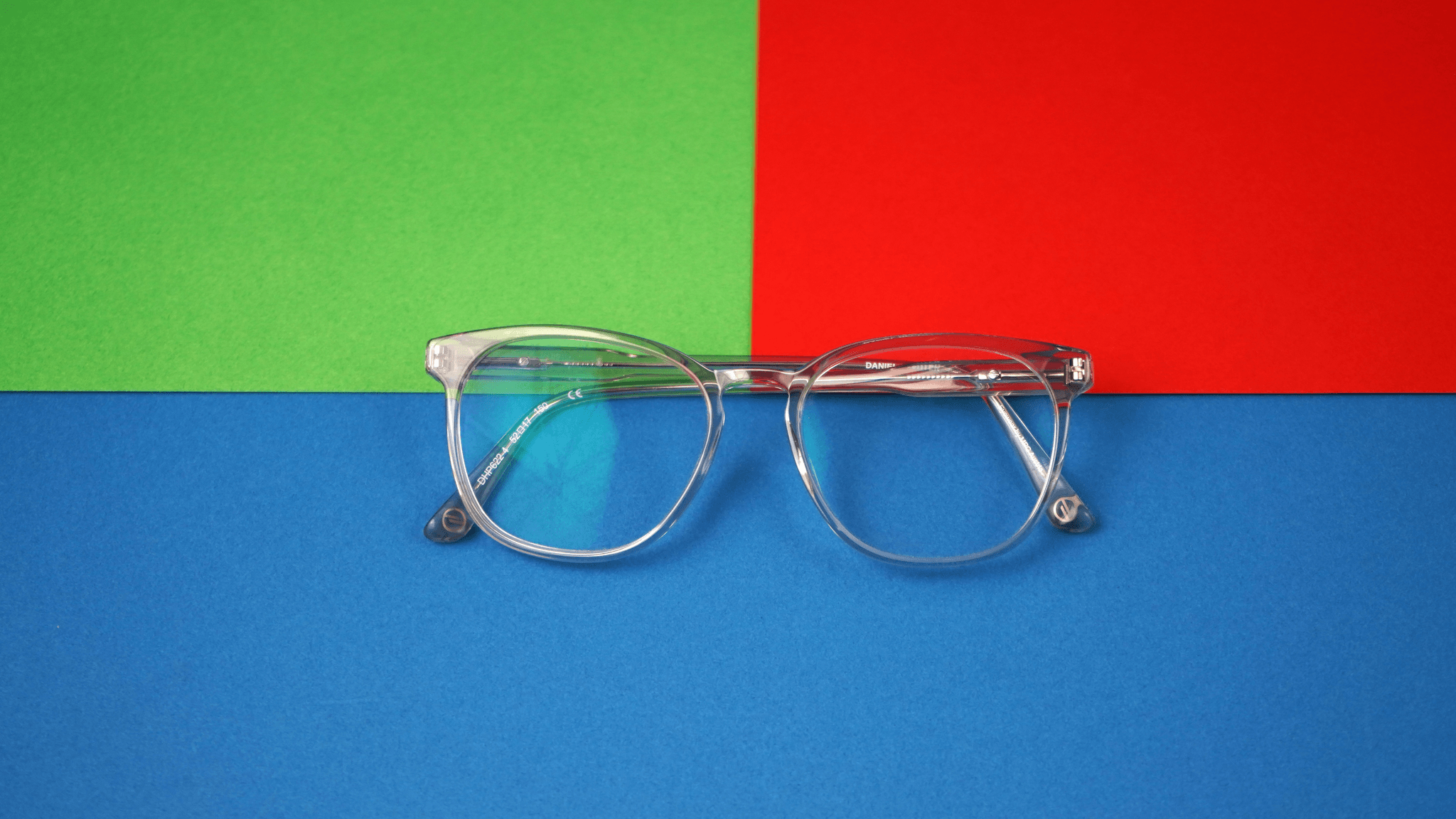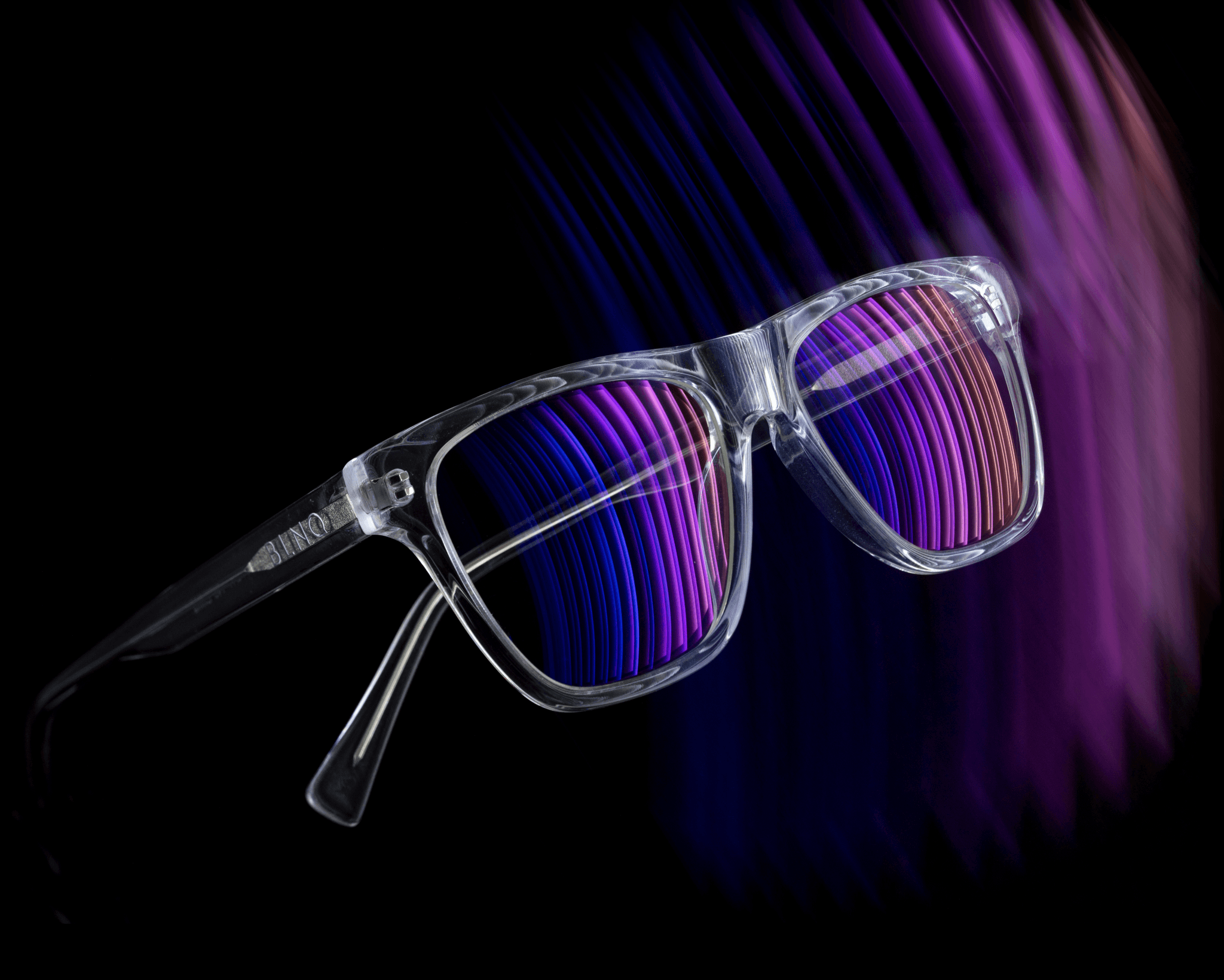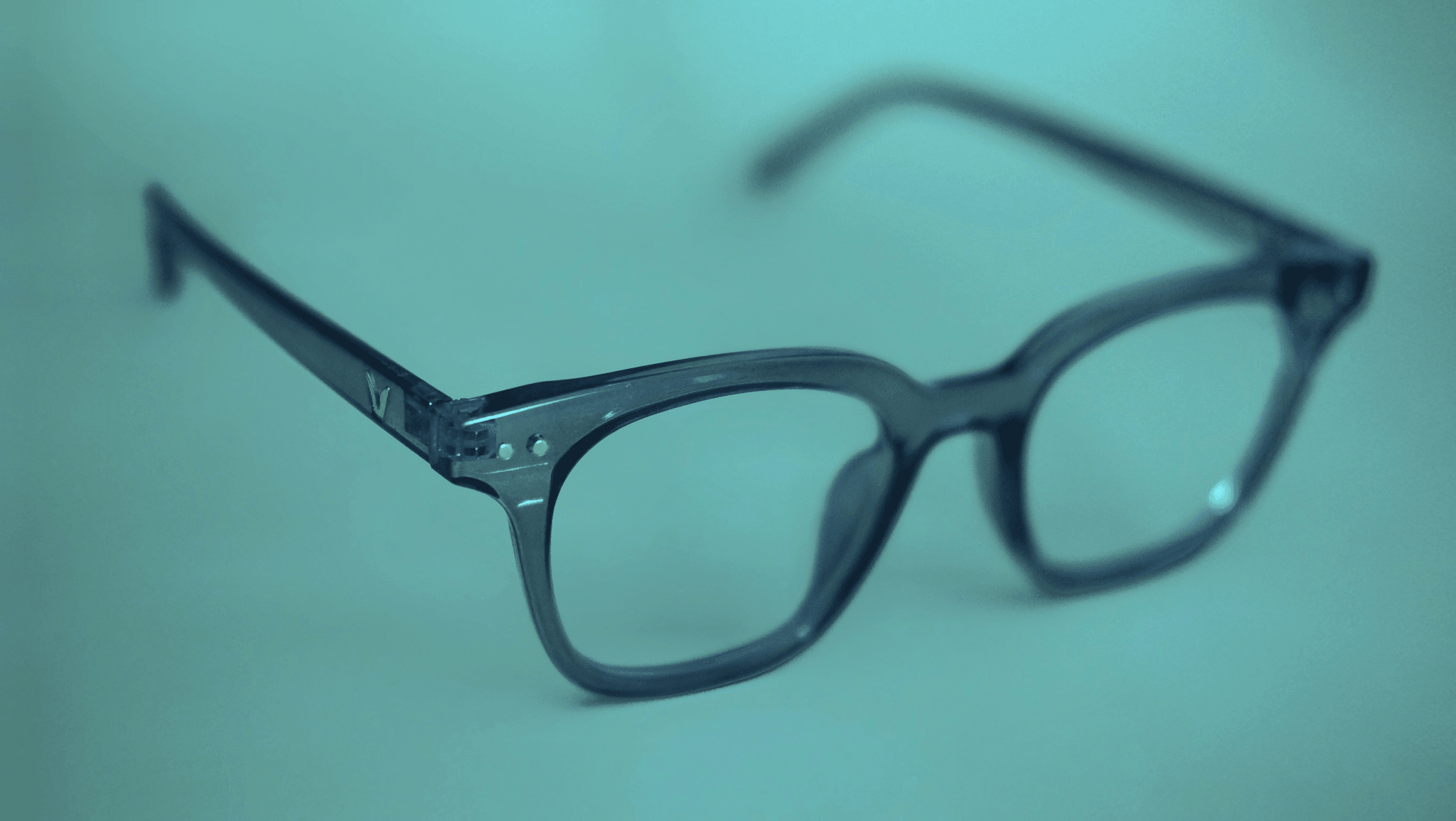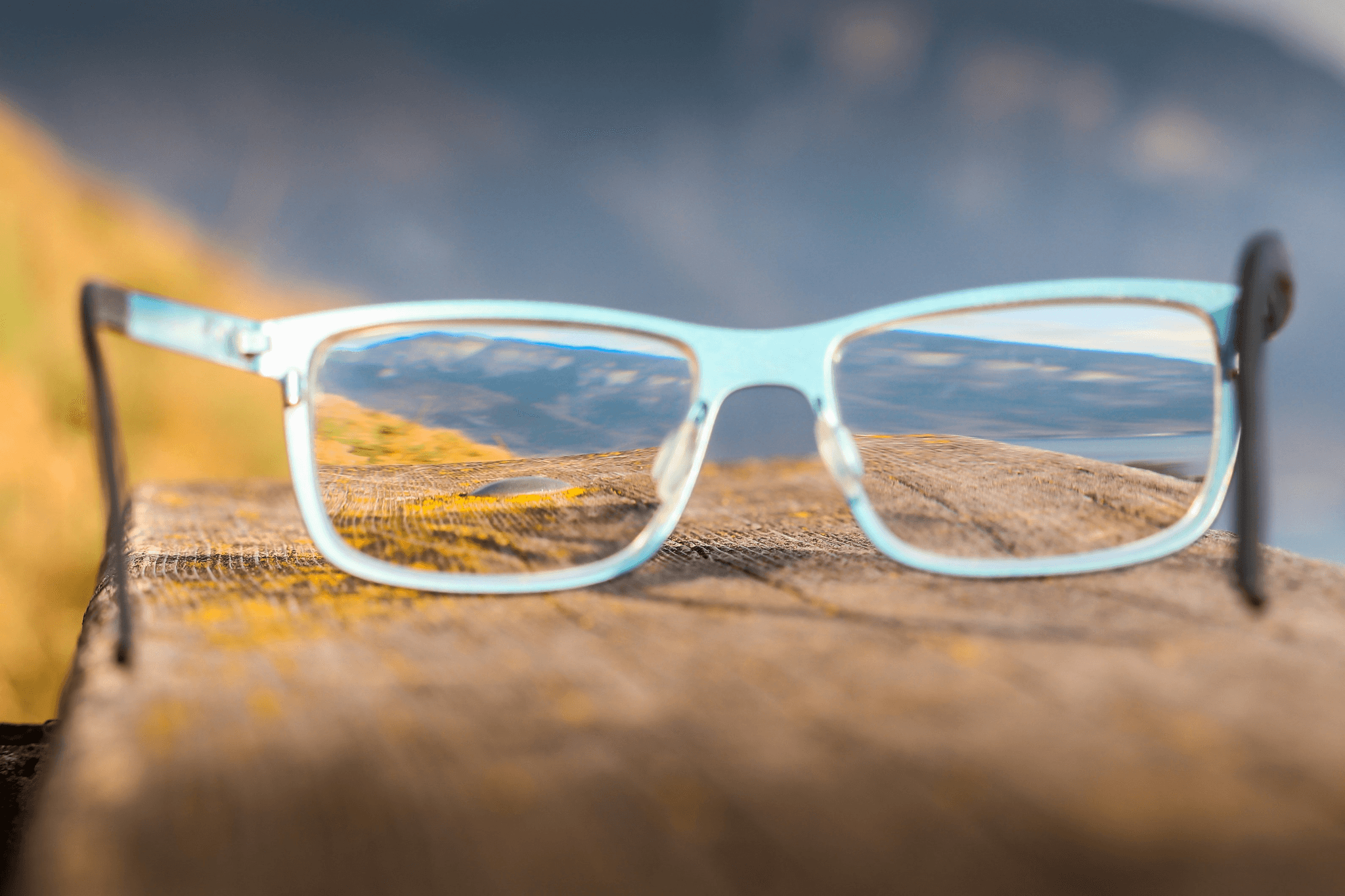Introduction

What is Trivex Material?
Trivex material is a high-performance polymer originally developed for military applications due to its superior impact resistance and optical clarity. Unlike traditional lenses, Trivex offers a unique combination of lightweight design and excellent visual acuity, making it an ideal choice for eyewear enthusiasts. In essence, it’s the best trivex material for glasses that balances functionality with style.
How Does Trivex Compare to Polycarbonate?
In the ongoing debate of Polycarbonate vs Trivex Lens, both materials have their merits; however, they cater to different needs. While polycarbonate lenses are known for being incredibly tough and affordable, Trivex lenses excel in optical clarity and comfort without compromising on strength. This leads many consumers to ponder the question: when should one choose Trivex over polycarbonate?
Why Choose Trivex Lenses?
Choosing Trivex lenses means investing in your vision—quite literally! With their superior optical quality and lightweight feel, they provide an unparalleled wearing experience that many find worth the price tag associated with them. When considering factors such as durability and UV protection alongside pricing insights on trivex glasses, it's clear why so many opt for this innovative lens technology.
Understanding Trivex Material

Trivex material has emerged as a popular choice in the eyewear industry, especially when comparing it to alternatives like polycarbonate. This section will delve into the science behind Trivex, its key features, and its common uses in eyewear. By the end, you’ll have a clearer understanding of why Trivex lenses are gaining traction among consumers.
The Science Behind Trivex
Trivex material is a high-performance polymer that was developed to provide superior optical clarity and impact resistance. Its unique composition combines a lightweight structure with remarkable strength, making it an excellent choice for eyewear. Unlike polycarbonate, which is also known for its durability, Trivex lenses are engineered using advanced technology that enhances both visual quality and comfort.
The molecular structure of Trivex contributes to its impressive impact resistance—approximately 10 times stronger than standard plastic lenses. This makes it an ideal option for those who lead active lifestyles or require safety eyewear without compromising on vision quality. Furthermore, the lightweight nature of Trivex ensures that wearers experience less fatigue throughout the day compared to heavier materials.
Key Features of Trivex Material
When considering the best trivex material for glasses, several key features stand out: optical clarity, lightweight design, and UV protection capabilities. One of the most significant advantages of Trivex is its superior optical performance; it provides crisp and clear vision across various prescriptions without distortion. This feature makes it highly desirable for individuals with strong prescriptions or those who spend long hours in front of screens.
Another noteworthy aspect is its lightweight construction—Trivex lenses are lighter than both traditional plastic and polycarbonate options, making them comfortable for all-day wear. Additionally, they offer built-in UV protection that shields your eyes from harmful rays without requiring additional coatings. This combination of features sets Trivex apart from other lens materials in terms of both functionality and comfort.
Common Uses in Eyewear
Trivex material has found a niche in various types of eyewear due to its impressive properties and versatility. It’s commonly used in prescription glasses designed for sports enthusiasts who need durable yet lightweight options that can withstand impacts during activities like cycling or skiing. Moreover, many brands have started incorporating Trivex into their stylish frames aimed at fashion-conscious consumers seeking high-quality lenses.
Safety glasses also benefit from being made with Trivex due to its exceptional impact resistance—ideal for industrial workers or those needing protective eyewear while engaging in hazardous tasks. Additionally, children’s eyewear often utilizes this material because it combines safety with comfort; parents can rest assured knowing their little ones are protected while wearing stylish frames made from durable materials like trivex.
For anyone exploring options between polycarbonate vs trivex lens choices when purchasing new glasses or sunglasses, understanding these common uses will help clarify which material best suits their lifestyle needs while keeping style firmly intact!
Trivex vs Polycarbonate: The Clash

Material Composition Differences
Trivex material is a relatively new player in the lens game, composed of a urethane-based polymer that gives it remarkable strength and flexibility. In contrast, polycarbonate lenses are made from a thermoplastic material, which provides its own set of advantages but also some drawbacks. While both materials are lightweight and impact-resistant, the molecular structure of Trivex allows for better optical clarity compared to polycarbonate, making it a top contender for those seeking high-quality vision correction.
Impact Resistance Evaluation
When evaluating impact resistance in the Trivex vs polycarbonate showdown, both materials perform admirably under stress. However, Trivex lenses have an edge due to their superior resistance to shattering; this makes them an excellent choice for active lifestyles or those who work in environments where eye safety is paramount. While polycarbonate is also known for its toughness, it can become brittle over time; thus, if you’re searching for durability alongside clarity in your eyewear, Trivex lenses may be your best bet.
Weight and Comfort Comparison
Weight plays a crucial role in overall comfort when wearing glasses throughout the day—here’s where we see another win for Trivex material! Generally lighter than polycarbonate lenses, Trivex glasses provide a more comfortable fit without sacrificing strength or optical performance. This means whether you're wearing them during long hours at work or while enjoying outdoor activities, you won’t be weighed down by your eyewear—an essential factor when selecting between Trivex vs polycarbonate.
Advantages of Trivex Lenses

Trivex lenses are becoming a popular choice for eyewear enthusiasts, and it’s not hard to see why. With their unique properties, they offer several advantages over traditional materials like polycarbonate. Let’s explore the benefits that make Trivex lenses a go-to option for many.
Superior Optical Clarity
One of the standout features of Trivex material is its superior optical clarity. Unlike some other lens materials, Trivex provides exceptional visual acuity, ensuring that your vision remains sharp and clear throughout the day. When comparing Polycarbonate vs Trivex Lens, you’ll find that the latter minimizes distortion and enhances your overall visual experience.
The clarity offered by Trivex lenses is particularly beneficial for those who spend long hours in front of screens or engage in detailed tasks requiring precise vision. This makes them an excellent choice for professionals and hobbyists alike who value high-quality optics in their eyewear. So if you're on the hunt for the best Trivex material for glasses, rest assured you’re investing in top-notch clarity.
UV Protection Benefits
When it comes to eye health, UV protection is paramount—and here’s where Trivex shines brightly! The inherent properties of Trivex material provide excellent protection against harmful ultraviolet rays without needing additional coatings. This means you can enjoy outdoor activities with peace of mind knowing your eyes are shielded from potential damage.
In direct comparison with polycarbonate, which also offers UV protection but may not be as robust as Trivex, you'll quickly realize why many opt for this advanced material. Whether you're hiking on a sunny day or just taking a stroll around town, having UV-protective lenses is essential to maintaining long-term eye health. Choosing Trivex glasses ensures you’re equipped with eyewear that prioritizes safety while keeping style intact.
Scratch Resistance Explained
Scratch resistance is another area where Trivex lenses outshine their competitors—yes, we’re looking at you again, Polycarbonate vs Trivex Lens! The composition of Trivex material makes it inherently more resistant to scratches compared to standard plastic lenses and even some polycarbonate options available on the market today. This durability translates into longer-lasting eyewear that can withstand daily wear and tear without compromising performance.
While no lens is entirely scratch-proof (let's be honest), opting for high-quality Trivex lenses can significantly reduce the chances of unsightly scratches marring your vision over time. For those who lead active lifestyles or have kids running around (you know who you are), investing in scratch-resistant eyewear becomes all the more crucial! Plus, when considering factors like cost—Trivex lenses price may seem higher initially—but their longevity often justifies this investment over time.
Disadvantages of Trivex Lenses

While Trivex lenses offer a plethora of advantages, they are not without their drawbacks. Understanding these disadvantages can help you make an informed decision when choosing eyewear. Let’s dive into the nitty-gritty of what you might want to consider before opting for Trivex lenses.
Cost Considerations
One of the most significant downsides to Trivex lenses is their price point. When comparing Polycarbonate vs Trivex Lens, you'll find that Trivex often comes with a heftier price tag. The superior quality and features of Trivex material for glasses contribute to its higher cost, which can be a dealbreaker for budget-conscious consumers.
For those wondering about the average Trivex lenses price, it typically sits above that of standard polycarbonate options. This premium pricing reflects the advanced technology and benefits associated with best trivex material for glasses, but it may deter some buyers looking for more economical choices. Ultimately, if you're in the market for high-quality eyewear without breaking the bank, you might need to weigh your options carefully.
Limited Availability
Another hurdle when considering Trivex lenses is their limited availability in retail outlets and online stores. While polycarbonate has become somewhat ubiquitous in eyewear shops, finding a selection of Trivex glasses can feel like searching for a needle in a haystack. This scarcity can lead to frustration if you're set on acquiring these specific lenses.
Many optical retailers may not stock them due to lower demand compared to polycarbonate options, which means you might have to hunt down specialized stores or online vendors that offer them. If you're keen on making an informed purchase regarding your vision needs, this limited availability could pose challenges while seeking out high-quality Trivex lenses.
Potential for Heaviness
Despite being lighter than glass or traditional plastic options, some users report that certain types of Trivex lenses can feel heavier than their polycarbonate counterparts. While this isn't universally true—many find them quite comfortable—the perception of weight can vary from person to person based on frame choice and lens thickness.
If comfort is paramount in your eyewear selection process, it's essential to try on different styles before committing fully to any pair featuring Trivex material or even exploring alternatives like Polycarbonate vs Trivex Lens comparisons more deeply. The potential heaviness may affect how long you’re willing to wear them throughout the day; after all, no one wants glasses that feel cumbersome!
Pricing Insights on Trivex Glasses

When it comes to purchasing Trivex glasses, understanding the pricing structure is essential for making an informed decision. The cost of Trivex lenses can vary significantly based on several factors, including lens customization and retailer pricing strategies. By breaking down the average price and the elements that influence costs, you can better navigate your eyewear options.
Average Trivex Lenses Price
On average, Trivex lenses price typically ranges from $150 to $300, depending on various features like prescription strength and lens coatings. This price point places Trivex lenses in a mid-range category when compared to other materials like polycarbonate. While they might be pricier than basic plastic lenses, many users find that the benefits of superior optical clarity and impact resistance make them a worthwhile investment.
Factors Affecting Cost
Several key factors affect the cost of Trivex glasses. Firstly, the customization options available—such as anti-reflective coatings or progressive designs—can increase the overall price significantly. Additionally, where you purchase your glasses plays a crucial role; specialty eyewear shops may charge more than online retailers or larger chain stores due to their personalized services and higher overhead costs.
Value Comparison with Polycarbonate
When comparing Trivex vs polycarbonate lenses in terms of value, it's important to consider both performance and durability alongside cost. While polycarbonate lenses are generally less expensive than their Trivex counterparts, they may not offer the same level of optical clarity or comfort over time. Many consumers find that investing in high-quality Trivex material for glasses pays off in long-term satisfaction and reduced eye strain—making them a smart choice despite their higher initial cost.
Conclusion
In the world of eyewear, Trivex material stands out as a superior choice for those seeking both durability and comfort. With its unique properties, Trivex lenses offer a compelling alternative to traditional options like polycarbonate lenses. As we've explored throughout this discussion, the advantages of Trivex material make it a worthy contender in the ongoing debate of Polycarbonate vs Trivex Lens.
Key Advantages of Trivex Material
Trivex material boasts several key advantages that set it apart from its competitors. First and foremost, its optical clarity is exceptional, providing wearers with sharp vision without distortion—a crucial factor for anyone who relies on their glasses daily. Additionally, Trivex is lightweight and impact-resistant, making it an ideal choice for active lifestyles where durability is paramount.
Another significant advantage lies in its UV protection capabilities; Trivex lenses effectively shield your eyes from harmful rays while maintaining comfort throughout the day. When considering the overall performance and benefits of eyewear options, it's clear why many opt for Trivex over polycarbonate alternatives. The combination of these features positions Trivex material as one of the best materials for glasses on the market today.
Situations Ideal for Trivex Lenses
Trivex lenses are particularly well-suited for various situations that demand both resilience and clarity. For individuals engaged in sports or outdoor activities, these lenses provide peace of mind with their high impact resistance—ideal when dodging flying objects or taking a tumble on rugged terrain. Similarly, those who work in environments where safety is essential will find that Trivex offers not only protection but also visual acuity necessary for precision tasks.
Moreover, people with active lifestyles or young children can benefit significantly from the lightweight nature of Trivex glasses; they stay comfortable during long periods of wear without causing fatigue or discomfort on the nose or ears. In essence, whether you're hitting the trails or simply navigating daily life with kids in tow, choosing Trivex lenses ensures you have reliable eyewear to meet your needs.
Why Daposi Chooses Trivex for Quality Eyewear
The unmatched optical clarity and impressive durability found in our range of Trivex glasses speak volumes about our commitment to excellence in eye care solutions. We understand that investing in quality eyewear means investing in your vision—hence our dedication to providing only the best trivex material available.
Furthermore, by offering competitive pricing on our selection of trivex lenses price points compared to other materials like polycarbonate—customers can enjoy high-performance eyewear without breaking the bank! Our mission at Daposi is simple: deliver stylish yet functional eyewear options tailored to fit every lifestyle while ensuring maximum satisfaction through superior materials like those found in our beloved trivex offerings.
